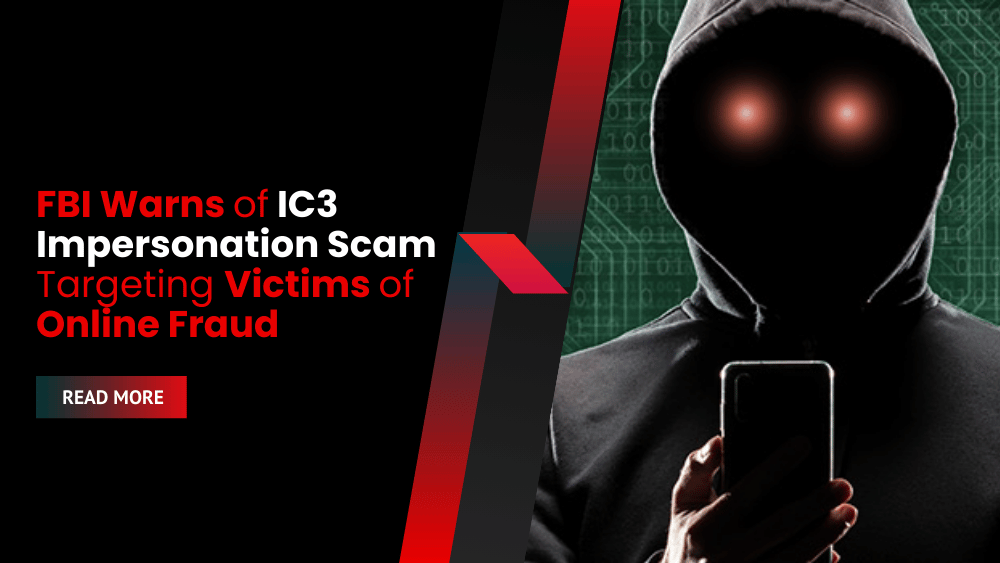The FBI has issued a warning about a growing scam involving criminals impersonating employees of the Internet Crime Complaint Center (IC3). The scheme tricks victims—many already affected by previous financial fraud—into giving up sensitive information under the false promise of fund recovery.
IC3 Impersonation Scams Targeting Online Fraud Victims
Between December 2023 and February 2025, the FBI received over 100 reports of scams involving fake IC3 agents. The attackers approach victims through emails, phone calls, social media, and online fraud recovery forums.
These individuals often claim to be able to recover funds lost in previous scams. In some cases, scammers even allege they already possess the missing money.
The FBI stated:
“Some individuals received an email or a phone call, while others were approached via social media or forums.”
How the Scam Works: Fake Profiles and Fraud Recovery Promises
One documented case involved a scammer creating a fake female profile on social media and infiltrating a fraud victims’ group. The individual then posed as a fellow victim and recommended contacting a supposed IC3 official—“Chief Director Jaime Quin”—via the Telegram app.
Victims who contacted the impersonator were told their funds had been recovered. This was followed by attempts to harvest financial information under the pretense of verifying account details or processing a recovery.
The FBI emphasized that these tactics are designed to revictimize individuals who have already suffered financial loss.
FBI Clarifies IC3’s Official Procedures
The Internet Crime Complaint Center (IC3) is the FBI’s official platform for reporting online fraud, including:
- Identity theft
- Phishing and spam
- Payment and auction fraud
- Romance and reshipping scams
- Counterfeit goods
- Non-delivery of products
To counter rising impersonation scams, the FBI issued clear guidance on how IC3 operates:
- The IC3 will never ask for payment to recover funds.
- They will not refer victims to private companies for recovery services.
- The IC3 does not initiate contact via social media, phone apps, or public forums.
- If additional follow-up is needed, an FBI agent from a local field office will handle it directly.
FBI Recommendations to Avoid IC3 Scams
To help the public protect against these fraud attempts, the FBI advised:
- Do not share financial or personal information with anyone met only online or by phone.
- Never send money, gift cards, or cryptocurrency to unverified individuals or services.
- Be skeptical of unsolicited offers to recover funds—especially those requesting payment or banking access.
If contacted by someone claiming to be from IC3, always verify through official channels.
How to Report IC3 Impersonation or Other Online Scams
The FBI encourages anyone targeted by this type of fraud to file a complaint via the official IC3 portal at www.ic3.gov. Include the following information when reporting:
- Communication details (email, phone number, usernames, platforms)
- Description of the interaction and all messages
- Financial transaction data, such as:
- Date and amount
- Payment method
- Account or wallet numbers
- Bank or crypto addresses involved
The FBI continues to monitor these cases and has not indicated if any arrests have been made related to the impersonation reports.









